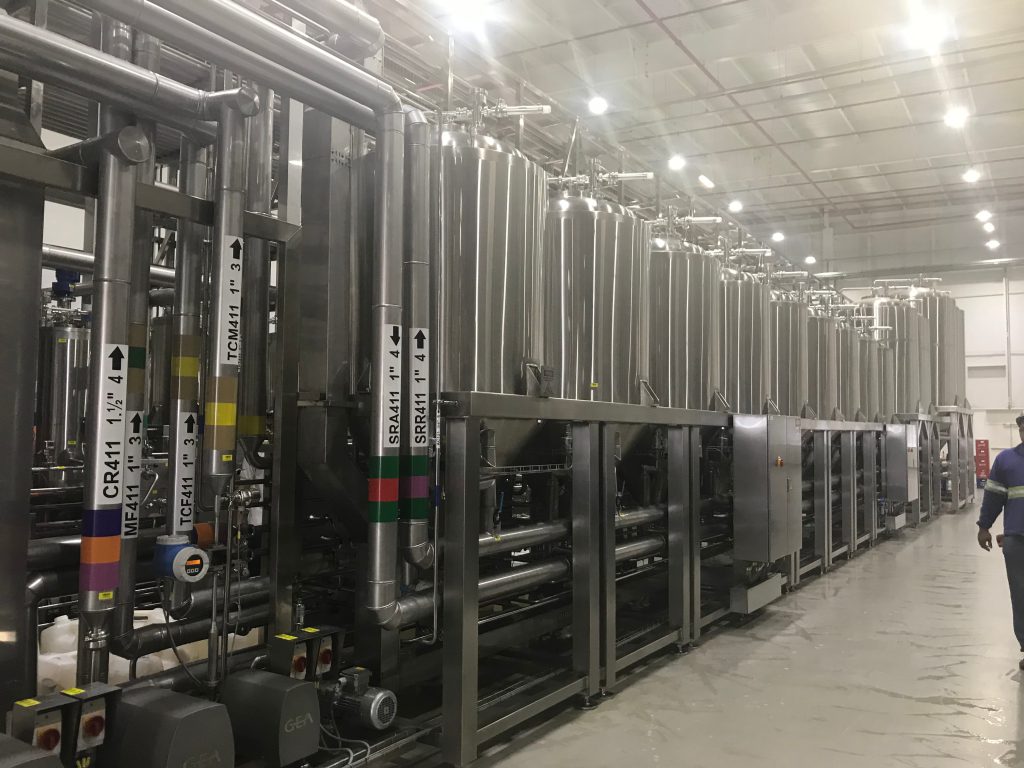Introduction

Craft beer has experienced a renaissance in recent years, with enthusiasts seeking unique flavors and high-quality brews. Behind every great craft beer is a carefully orchestrated fermentation process, with brewery fermenters playing a pivotal role. In this article, we delve into the significance of brewery fermenters in craft beer production, examining their types, functions, and impact on the final product.
Understanding Brewery Fermenters
Brewery fermenters come in various types, each with its unique characteristics and advantages. Understanding these fermenter types is crucial for brewers aiming to optimize their fermentation processes and produce high-quality craft beer.
Open Fermenters:Open fermenters have a long history in brewing and are particularly associated with traditional Belgian brewing practices. These fermenters lack a sealed lid, allowing the wort to be exposed to the surrounding environment. During fermentation, wild yeast and bacteria present in the air inoculate the wort, contributing to the development of complex flavors and aromas.
While open fermenters offer a connection to brewing traditions and can produce distinctive beers, they present challenges in terms of sanitation and control over fermentation conditions. Without a sealed environment, there is a higher risk of contamination, requiring careful monitoring and management by the brewer.
Closed Conical Fermenters:In contrast to open fermenters, closed conical fermenters represent a more modern approach to fermentation. These fermenters feature a conical shape, with a sealed lid and a bottom cone that facilitates the collection of yeast sediment during fermentation.
One of the primary advantages of closed conical fermenters is their ability to separate yeast sediment from the beer, resulting in clearer and cleaner final products. The sealed environment also minimizes the risk of contamination, providing greater control over fermentation conditions such as temperature and pressure.
Closed conical fermenters are widely used in craft breweries due to their efficiency and reliability. They allow brewers to produce consistent batches of beer while minimizing the need for manual intervention and maintenance.
Unitanks:Unitanks, also known as cylindroconical fermenters, combine the functions of fermentation and conditioning in a single vessel. These versatile fermenters can perform both primary fermentation and secondary conditioning, streamlining the brewing process and saving space in the brewery.
Unitanks typically feature a conical bottom similar to closed conical fermenters, allowing for efficient yeast sedimentation and beer clarification. They are equipped with ports and fittings for temperature control, carbonation, and sampling, providing brewers with flexibility in managing fermentation parameters.
By consolidating fermentation and conditioning processes into a single vessel, unitanks offer breweries increased efficiency and flexibility in production scheduling. They are particularly well-suited for small to medium-sized craft breweries looking to maximize their brewing capacity and optimize space utilization.
Functions of Brewery Fermenters
The primary function of brewery fermenters is to provide an environment conducive to yeast activity and beer maturation. Key functions include:
- Yeast Propagation: Brewery fermenters provide a suitable habitat for yeast propagation, ensuring vigorous fermentation and desirable flavor development.
- Temperature Control: Maintaining optimal fermentation temperatures is crucial for yeast health and flavor consistency. Many fermenters are equipped with temperature control systems to achieve precise fermentation conditions.
- Pressure Regulation: Certain beer styles, such as lagers and carbonated ales, require specific pressure levels during fermentation. Fermenters equipped with pressure relief valves enable brewers to control carbonation levels and achieve desired effervescence.
Impact on Beer Quality
The choice of brewery fermenter significantly influences the quality and characteristics of the final beer product. Factors such as fermenter material, design, and sanitation practices can impact:
- Flavor Profile: Fermenter geometry and yeast management practices can influence the production of esters, phenols, and other flavor compounds during fermentation, shaping the beer’s aroma and taste.
- Clarity and Stability: Proper fermentation vessel design and handling minimize trub and yeast sedimentation in the final beer, resulting in improved clarity and stability.
- Consistency: Consistent fermentation conditions, facilitated by well-maintained fermenters, contribute to batch-to-batch consistency and quality control.
Types of Brewery Fermenters

Brewery fermenters come in various types, each with its unique characteristics and advantages. Understanding these fermenter types is crucial for brewers aiming to optimize their fermentation processes and produce high-quality craft beer.
| Fermenter Type | Description |
|---|---|
| Open Fermenters | Traditional vessels for spontaneous fermentation, allowing exposure to ambient yeast and bacteria. |
| Closed Conical Fermenters | Modern vessels featuring a conical shape for efficient yeast separation and contamination prevention. |
| Unitanks | Versatile vessels combining fermentation and conditioning, suitable for space-constrained breweries. |
Conclusion
Brewery fermenters are indispensable tools in craft beer production, influencing everything from flavor profile to beer stability. Understanding the role of fermenters and choosing the right type for each brewery’s needs is essential for producing high-quality, consistent craft beer. As the craft beer industry continues to evolve, innovations in fermenter design and technology promise to further enhance beer quality and creativity.
FAQ
Q:How do I choose the right fermenter for my brewery?
A:The choice of fermenter depends on factors such as brewery size, beer styles produced, and budget. Consult with equipment suppliers and experienced brewers to determine the most suitable option for your specific needs.
Q:What maintenance is required for brewery fermenters?
A:Regular cleaning and sanitation are essential to prevent contamination and maintain beer quality. Follow manufacturer guidelines for proper maintenance procedures, including CIP (clean-in-place) protocols.
Q:Can I use the same fermenter for different beer styles?
A:While some breweries use separate fermenters for different beer styles to prevent flavor cross-contamination, many craft breweries successfully ferment various styles in the same vessel, employing proper cleaning and sanitation practices between batches.
By understanding the critical role of brewery fermenters in craft beer production, brewers can optimize their fermentation processes and deliver exceptional brews to discerning consumers. Cheers to the art and science of fermentation!

